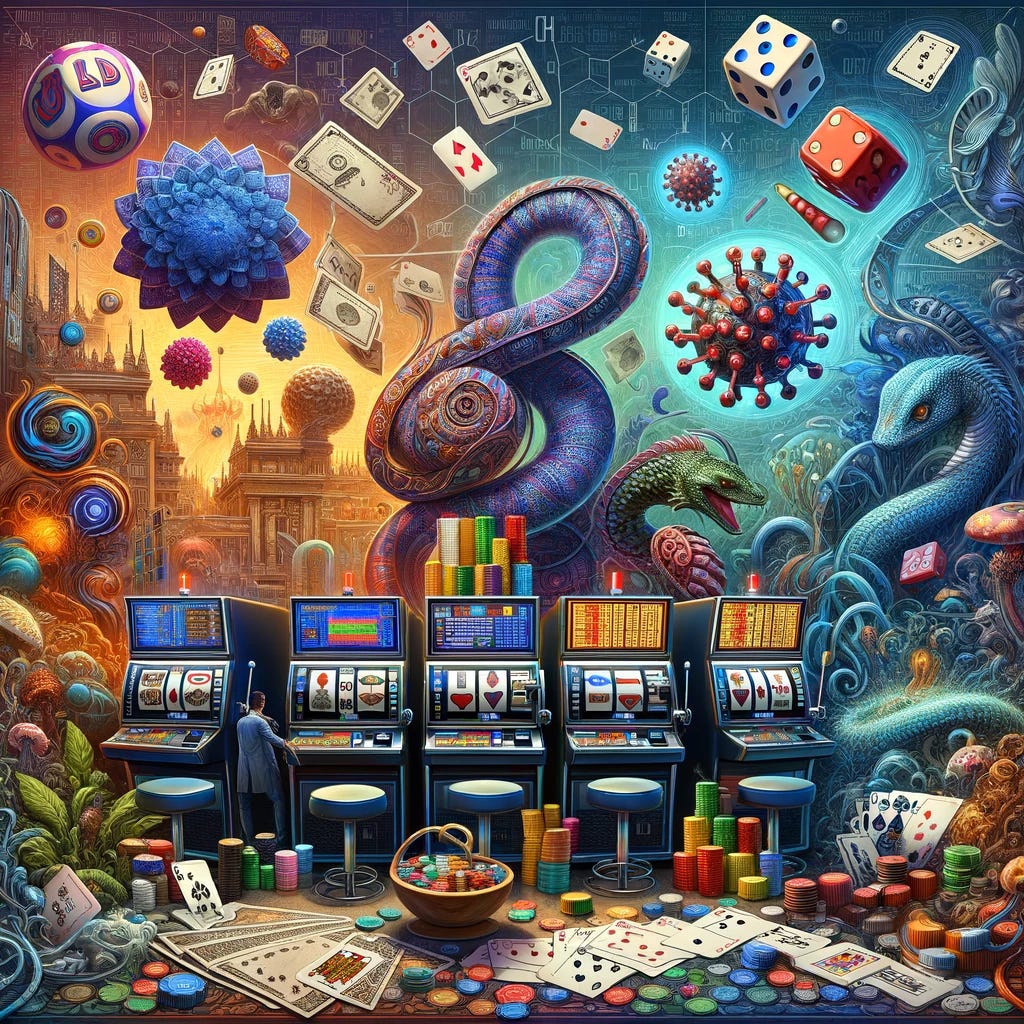What is this Substack about (3)? How research on casino gamblers helps to better understand decision making more generally
Theme 3 of 4
This Substack is about four inter-related themes, each of which is described in a separate brief essay. Theme 1 was described here and Theme 2 here. The current post describes the third theme: How research on judgment and decision making (J/DM) “in the wild”—such as field research looking at casino gamblers’ strategies and beliefs about winning—helps inform normative and descriptive models of J/DM.
Despite the value that the science of judgment and decision making brings to our understanding of casino gamblers’ strategies and beliefs about winning—discussed in the previous post—there remains a long-running concern as to the extent to which that science generalizes beyond the lab to non-experimental contexts, including to casino gamblers. In more experimental, scientific language, these are questions about external and ecological validity.
Part of the criticism focuses on unrealistic simplifying assumptions in J/DM science and theory. Specifically:
The use of abstract mathematical models to develop normative models of rational choice, such as subjective expected utility theory;
And the use of carefully controlled experimental settings with hypothetical, intentionally content-free gambles, and novice decision makers to explain why people deviate from those normative models (such as the long list of putatively inbuilt, species-general, cognitive “heuristics and biases”).
Simplifying models and carefully controlled experiments are central to what most of us think of as good science and theory, but they risk defining the most important factors out of the equation.
Another part of the criticism emphasizes the complexity and richness of real-world decision contexts and how important that is to understanding processes in judgments and decision making. It points the importance of:
decision makers’ experience and learning within specific decision domains;
environments that are intentionally designed and that co-evolve with the decision makers, in part as a consequence of how those environments impact judgments and decisions;
the rich social–cultural context and content, including multi-generational evolving practices, values, and beliefs, that are domain specific and that impact processes and outcomes in J/DM.
Casino gambling—with its close association to the simplifying assumptions in normative and descriptive models of decisions making under risk and uncertainty—is a wonderful domain by which to explore whether experimental findings do or do not generalize. Most importantly, the study of casino gambling in the wild provides opportunities to uncover important insights into processes in judgment and decision making that have been missed when studying J/DM in more controlled, experimental settings.

